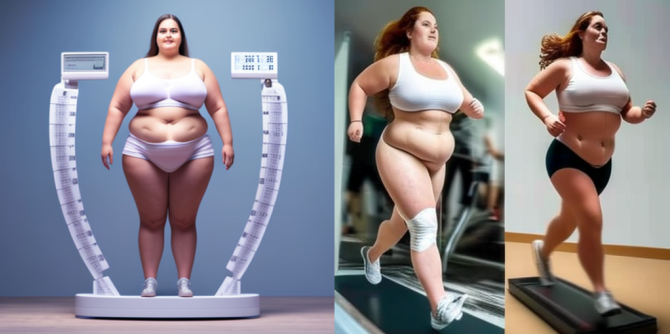Losing weight can be a challenging task, but technology has the potential to make it easier and more effective. From wearable fitness trackers to calorie-tracking apps, there are a variety of tools available to help individuals monitor their progress and make healthier choices.
Wearable fitness trackers, such as smartwatches and fitness bands, are one of the most popular technology tools for weight loss. These devices can track a variety of metrics, such as steps taken, calories burned, and even sleep patterns. The data collected by these devices can be used to set goals and track progress over time. Many wearables also come equipped with coaching features that can provide personalized recommendations and motivational messages.
Calorie-tracking apps are another popular technology tool for weight loss. These apps allow individuals to easily track their food intake, and many even have built-in databases of foods and their nutritional information. Some apps also allow users to scan barcodes of products to quickly add them to their food diary, making tracking even more convenient. These apps can also provide personalized recommendations for calorie intake and weight loss goals, based on the user’s age, weight, and activity level.
Virtual and augmented reality are also being used to enhance weight loss programs. Virtual reality can be used to create immersive workout experiences, while augmented reality can be used to display real-time feedback on form and technique during exercises. These tools have the potential to make working out more engaging and effective, and also can be used to provide personalized training and coaching.
Lastly, there are a variety of technology tools that focus on behavior change and motivation, such as gamification and social support. For example, some weight loss apps and programs include challenges and rewards to keep users motivated, while others allow users to connect with others going through similar journeys, which can provide a sense of community and accountability.
In conclusion, technology has the potential to make weight loss easier and more effective. From wearable fitness trackers to calorie-tracking apps, there are a variety of tools available that can help individuals monitor their progress, make healthier choices, and stay motivated. However, it’s important to remember that weight loss is not a one-size-fits-all solution and it’s important to consult with healthcare professional for personalized guidance.
In addition to the technology tools mentioned above, there are several other ways that technology can help with weight loss.
One such way is through the use of mobile apps and online programs that provide access to expert advice and personalized meal plans. These apps can also connect users with certified nutritionists, trainers, and other health professionals who can provide personalized guidance and support.
Another way that technology can aid in weight loss is through the use of biofeedback devices. These devices can be used to monitor things like heart rate, breathing, and muscle tension, and provide users with real-time feedback on how their body is responding to different activities. This can help users to make more informed decisions about their exercise and diet, and ultimately lead to more effective weight loss.
Finally, technology can also play a role in weight loss through the use of virtual reality and augmented reality. For example, virtual reality can be used to create immersive workout experiences, while augmented reality can be used to display real-time feedback on form and technique during exercises. These tools have the potential to make working out more engaging and effective, and also can be used to provide personalized training and coaching.
In conclusion, technology has the potential to make weight loss easier and more effective. From wearable fitness trackers to calorie-tracking apps, and from virtual and augmented reality to biofeedback devices, there are a variety of tools available that can help individuals monitor their progress, make healthier choices, and stay motivated. It’s important to remember that weight loss is not a one-size-fits-all solution and it’s important to consult with healthcare professional for personalized guidance.








